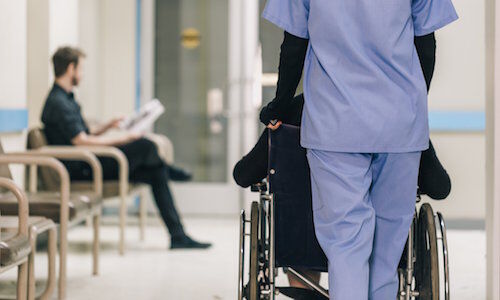S&P: Coronavirus Could Be Worse for Chinese Banks Than SARS
If the spread of the deadly coronavirus outbreak proves to be persistent as it is already beginning to demonstrate, Chinese banks could be hit harder than during the SARS crisis.
At nearly 25,000 confirmed cases of infection across every continent except South America, the spread of the virus has already been deemed more widespread than the severe acute respiratory syndrome (SARS) crisis, according to a research note by S&P warning of bank’s vulnerabilities against the risks.
«Because the contagion is already more widespread, the GDP trajectory for the novel coronavirus could be worse, if it is not contained swiftly,» said S&P credit analyst Ming Tan.
Tan underlined how the outbreak was testing the «traditional credit risk-driven stress assumptions» used by the People’s Bank of China (PBoC). Following a stress test of the 30 largest lenders, the PBoC found last year that five banks failed to meet the 5 percent common equity tier ratio and seven banks failed to meet the 6 percent threshold. Three seizures were made in 2019 – the first state-backed lender bailouts in 20 years – and S&P predicts another three banks will require «sizeable recapitalizations».
Weaker Backdrop
Ultimately, overall economic impact will depend on the severity and duration of the outbreak but a major difference between the SARS crisis in 2003 and this time is the challenging backdrop China faces.
«Although the Chinese banking sector and the economy are much stronger today than they were in 2003 and are in better financial shape to meet the challenges, Sars happened when the Chinese economy was gaining momentum after joining the World Trade Organisation in 2001,» Tan added.
«With that momentum, the economy probably rebounded from Sars faster than it otherwise would. Currently, the Chinese economy is facing multiple risks, which could slow down the recovery of economic activities and potentially bring more pain to the banking sector.»
Tripling Bad Loans
Authorities in Beijing is already pushing banks to extend support and provide financial buffers. The China Banking and Insurance Regulatory Commission (CBIRC) issued a statement last month calling on lenders to roll over loans from affected borrowers, allow mortgage and credit card repayment delays and keep credit lines open especially for small businesses.
In fact, there are already signs that China will slow its crackdown on the shadow banking sector after laboriously shedding $1.7 trillion of off-balance sheet loans since 2017. Over the weekend, regulators already allowed extensions for transitioning customers away from products assuring returns – a key instrument to support shadow lending – which was originally planned to be halted in December.
But even with the additional easing through potential reserve requirement ratio cuts, S&P believes it will do little to withstand the impact of a prolonged coronavirus outbreak. According to the ratings agency, this could lead bad loan ratios at Chinese banks to triple and swell to 5.6 trillion yuan ($800 billion).



























